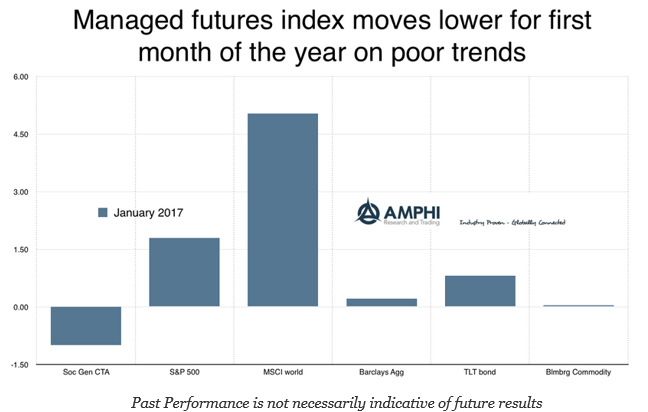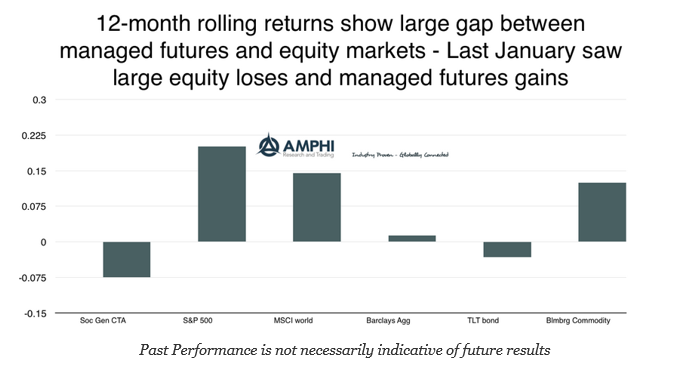The managed futures hedge fund style, as measured by the SocGen CTA index, declined by just under one percent for the month. There was limited movement in commodities and bonds and the largest gains for the month were in non-US equities where there is usually less exposure by futures managers. Going back over our sector trend measures, we were predicting a lackluster month since there were few strong directional trends going into January. The SocGen trend indicator index was down over 6 percent and the short-term trader index declined about 4 percent.
Separating all the possible reasons for the underperformance, the cause is always simple. Most managed futures managers engage in some form of trend following or momentum trading. These managers are non-predictive in the sense that they may not have a view on the market. They are not guessing on the next market move through some fundamental framework. They look for trends to exploit and there were limited trends. You can call it signal to noise or choppiness, but opportunities did not lead to profits. No trends, no profits.
The 12-month rolling returns are negative with a large gap between managed futures returns and equities. The reason is very clear once you look at the cycle over the last year. The end of January was close to the bottom for the stock market move while managed futures posted large gains last January. With manage futures close to a peak and equities at a trough; you will get large rolling return differentials.


